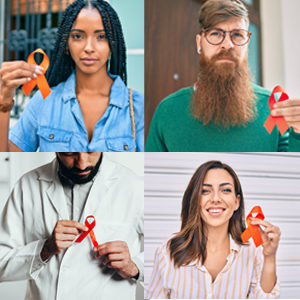As we approach the end of ADHD Awareness Month, let’s consider how perspectives on ADHD continue to shift toward the positive with the increasing awareness of ADHD as a health concern and a manageable condition.
This year, CHADD and the ADHD Coalition have been exploring “new perspectives” on what it means to have ADHD and create a successful life. The video series New Perspectives on ADHD has brought authors, coaches, and researchers together to share perspectives on lifestyle, diagnosis, and treatment options.
Members of the ADHD community have contributed personal stories, art, and memes to help raise awareness. Many of these contributions are highlighted on the ADHD Awareness Month website and social media channels.
But the work continues beyond October, because we know that ADHD awareness isn’t just for one month. ADHD is a lifelong condition that affects all areas of life for more than 17 million children and adults in the United States.
Why do we raise awareness?
Neil Peterson, writer of the PsychCentral ADHD Millennial blog, looks at the question this way: “Spreading ADHD awareness increases the chance that people will make the connection between the problems in their lives and ADHD, which makes it more likely that they’ll seek treatment.”
Awareness helps to change our perspectives as well as those of other people who may not understand ADHD very well.
“When we learn more about ADHD, we gain insight into our lives,” Mr. Peterson says, “and by hearing others’ stories, we realize we aren’t alone. Teaching those around us about ADHD can help create a world that is more ADHD-friendly, where neurodiverse brains are better understood.”
CHADD, the ADHD Coaches Organization, and the Attention Deficit Disorder Association formed the ADHD Awareness Coalition to provide the ADHD community and the public with reliable, evidence-based information about ADHD, treatment, and lifestyle management. Together, we sponsor ADHD Awareness Month. We also host the upcoming annual conference on ADHD in November.
CHADD remains a leader in providing information and support for individuals and families affected by ADHD. CHADD’s local chapters provide support to adults and family members.
CHADD’s support of the ADHD community
CHADD President Patricia M. Hudak sees the strength of the ADHD community and CHADD’s local support groups helping to shape the national perspective on ADHD and raise awareness on the importance of treatment and lifestyle management. Ms. Hudak is also the former co-chair of the CHADD of Northern Virginia and DC chapter.
“People benefit from hearing other people talk about what they experience day-to-day,” she says. “We’ve got wonderful leaders of our support groups who have been doing this for years. That connection in talking to somebody else, having that exchange is a beautiful thing. They feel like they are not alone.”
CHADD’s National Resource Center is the national clearinghouse of information on research and new treatment options. The NRC provides information for adults and for parents. Providing that information helps members of the ADHD community make decisions for themselves and their families that can better their lives.
“We have the evidence-based information for ADHD,” Ms. Hudak says. “It’s reliable, it’s credible. The professionals we have involved are the best of the best in the world of ADHD.”
ADHD is a serious, brain-based health condition that can create difficulties in a person’s life. But with the proper treatment and support—from family, at school, and in the workplace—people can be successful and have fulfilling lives. Taking part in ADHD community events, such as the annual awareness month or local CHADD chapter events, helps to change perceptions and perspectives about ADHD.
“We’ve come together in a way where we have the common goal of being there for our people,” Ms. Hudak says. “We’re determined to build a strong community.”
Taking part in the largest ADHD gathering
The 2021 Virtual International Conference on ADHD will take place November 4-6. The annual conference, whether it’s a virtual or an in-person event, is the world’s largest gathering of the ADHD community.
“After last year’s quick pivot to an online format, we had especially hoped that this year would be a return to the rowdy family reunion that everyone loves this conference for,” say conference co-chairs Ari Tuckman, Melissa Reskof, and Cris Sgrott. “What seemed to be maybe an overly cautious decision in January to do a second year online turned out to be very wise indeed. This year’s sessions, support groups, exhibitors, and various events really showcase this.”
Sessions include the challenges you might face on a daily basis: helping your kids succeed in school, how to perform well at work, and how to have a happier family and relationship. There will also be sessions that distill the lessons learned from this very challenging year and a half and how to apply them to whatever tomorrow brings.
“We want you to connect with all the other amazing people at the conference so that you don’t have to go it alone,” say the conference co-chairs.
Registration is still open. Information on sessions and speakers also be found at the registration page.
Changing perspectives on ADHD
- Print out the NRC fact sheets on ADHD and share them with your friends and community.
- Learn about planning a virtual walk or other awareness-raising event
- Host an event promoting ADHD awareness or take part in local events on education or mental health.
- Use your own social media—Facebook, Twitter, Instagram, and other platforms—to share your perspective on living with ADHD. Use #ADHDPerspectives2021 to be seen by other CHADD members and friends.
- Help others gain a new perspective on ADHD. Speak out when you have the opportunity, whether it is conversation among family and friends, or by contacting your local news media, school districts, or elected officials. Let them know what it is like to live with ADHD and refer them to evidence-based information they can use.
Join the discussion: What is your perspective on living a fulfilling life with ADHD?


